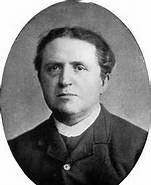 It is good for Christians to recall that God actually owns the world. This fact never changes throughout earth history, and even though the evil one has some temporary influence over the events of men the sovereign plan of God always prevails (Proverbs 16:4; Romans 8:28). For example, King David tells us in the Psalms:
It is good for Christians to recall that God actually owns the world. This fact never changes throughout earth history, and even though the evil one has some temporary influence over the events of men the sovereign plan of God always prevails (Proverbs 16:4; Romans 8:28). For example, King David tells us in the Psalms:
“The earth is the LORD’s and the fullness thereof, the world and those who dwell therein, for he has founded it upon the seas and established it upon the rivers.” Psalm 24:1-2
Also, two additional Psalms written by others reiterate this same foundational truth,
“The heavens are yours; the earth also is yours; the world and all that is in it, you have founded them.” Psalm 89:11
“He set the earth on its foundations, so that it should never be moved.” Psalm 104:5
With this fact in mind, then, how then should Christians relate to the ever-changing powers in the civil sphere and to the diverse ideologies in this fallen world? Do we quietly go along with every government inspired program, no matter how ridiculous or evil it is, or do we look to the Bible to see how God would have us live?
Abraham Kuyper (1837-1920), a Dutch Reformed pastor, politician, newspaper editor, professor, and theologian, thoughtfully addressed these basic questions. Kuyper believed that every sphere of life belonged to King Jesus and that no part of life should ever be separated from the lordship of Jesus Christ. Moreover, he believed that the Bible was sufficient to instruct us in how we are to act, speak, and think. He wrote,
 Oh, no single piece of our mental world is to be hermetically sealed off from the rest, and there is not a square inch in the whole domain of our human existence over which Christ, who is Sovereign over all, does not cry: “Mine!”
Oh, no single piece of our mental world is to be hermetically sealed off from the rest, and there is not a square inch in the whole domain of our human existence over which Christ, who is Sovereign over all, does not cry: “Mine!”
Whatever man may stand, whatever he may do, to whatever he may apply his hand—in agriculture, in commerce, and in industry, or his mind, in the world of art, and science—he is, in whatsoever it may be, constantly standing before the face of God. He is employed in the service of his God. He has strictly to obey his God. And above all, he has to aim at the glory of his God.
In this respect, Kuyper asserted the sphere sovereignty of Jesus Christ over all human endeavors and institutions. Christians should not be afraid to engage fallen culture with the gospel and biblical truth. There simply is no neutral ground, and all human beings—whether they acknowledge God or not—must live by the laws that God has given, and also they must ultimately give an account to God on the Judgment Day based on his laws (Matthew 25:31-33; Romans 14:10-12; 2 Corinthians 5:10).
Let me return now to my basic question, “Who owns the world?” If it is man, or the evil one, who actually owns the world, then this leaves all of mankind in a place of ambiguity and uncertainty as to just how we should live in this fallen world. Everything is always changing; nothing is fixed or permanent. In addition, this premise gives the false impression that there is some standard of right and wrong other than God’s Law; some have glibly called this a “natural law.”
However, the Bible clearly asserts that God alone is the one who owns the world. He has never given its title over to anyone else—not to any individual human being, not to any humanistic ideology or philosophy, nor to the evil one. The world belongs to God. Moreover, the Bible declares that God alone is the law-giver. Therefore, mankind has a fixed and unchanging set of laws to live by—God’s laws—and Christians have a divine commission to take dominion in every sphere of life for our sovereign King, the Lord Jesus Christ (Genesis 1:28; Psalm 103:17-19; Matthew 28:19-20).
If you want to learn more about Abraham Kuyper, then I would suggest the following three books—they are short and full of many stirring quotes:
- Kuyper, Abraham. Lectures on Calvinism. Grand Rapids, MI: William B. Eerdmans Publishing Company, 1931.
- Mouw, Richard J. Abraham Kuyper: A Short and Personal Introduction. Grand Rapids, MI: William B. Eerdmans Publishing Company, 1931.
- Van Til, Henry R. The Calvinistic Concept of Culture. Grand Rapids, MI: Baker Academic, 1959, 1972.
–Pastor Marcus J. Serven


 Covenant Family Church is a conservative, Bible-believing, and elder-governed congregation located in Wentzville, MO which seeks to evangelize the lost and equip those who have been converted to walk worthy of their calling in Christ.
Covenant Family Church is a conservative, Bible-believing, and elder-governed congregation located in Wentzville, MO which seeks to evangelize the lost and equip those who have been converted to walk worthy of their calling in Christ.  The Orthodox Presbyterian Church continues to be vigorous in its defense and propagation of the historic Christian faith, particularly as it was articulated by the Protestant Reformers of the 16-17th centuries.
The Orthodox Presbyterian Church continues to be vigorous in its defense and propagation of the historic Christian faith, particularly as it was articulated by the Protestant Reformers of the 16-17th centuries.  What led you to visit our website today? What are you seeking? Can we talk about that? Why don't you
What led you to visit our website today? What are you seeking? Can we talk about that? Why don't you  Seek the Lord while He may be found, call upon Him while He is near. Let the wicked forsake his way, and the unrighteous man his thoughts; let him return to the Lord, and He will have mercy on him...
Seek the Lord while He may be found, call upon Him while He is near. Let the wicked forsake his way, and the unrighteous man his thoughts; let him return to the Lord, and He will have mercy on him...